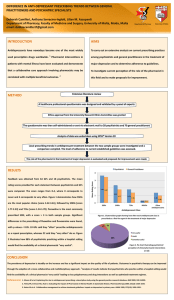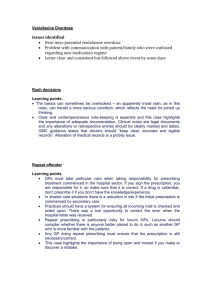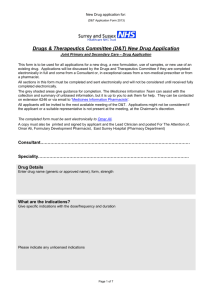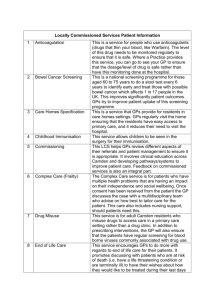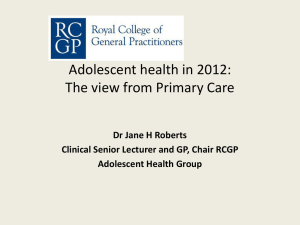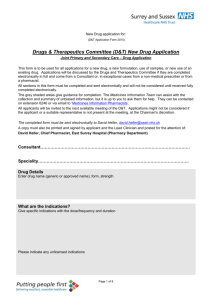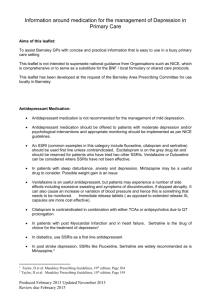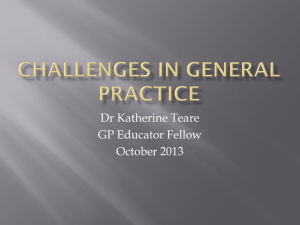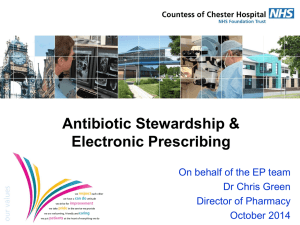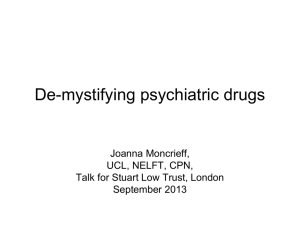Exercise and Mental Health
advertisement
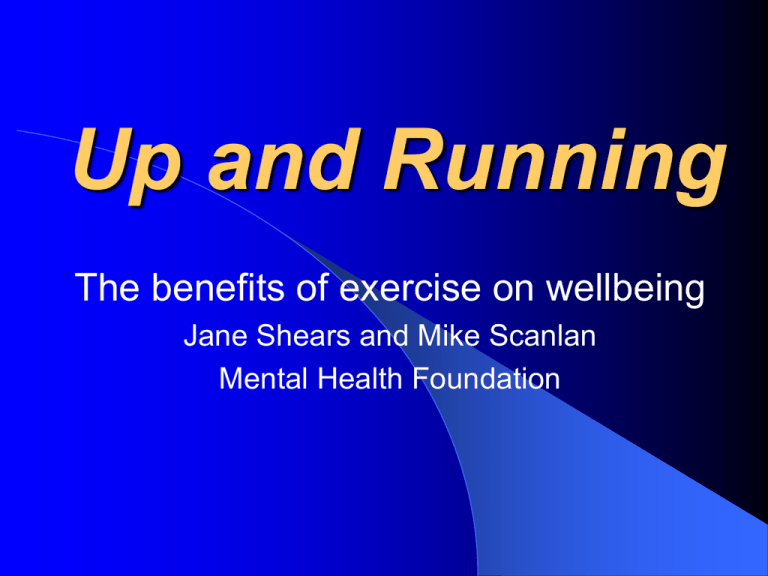
Up and Running The benefits of exercise on wellbeing Jane Shears and Mike Scanlan Mental Health Foundation Context One in four people will experience a mental health problem 2020 2nd biggest global health problem Suicide accounts for 30% of deaths in the 15-24 year age group People with mental health problems are at a significant risk of social exclusion, stigma and discrimination Primary care consultations Between 1994 and 1998 consultations for depression rose from 4 to 9 million Up to 30% of consultations relate to mental distress 90% of people experiencing mental distress are treated in primary care Links between physical and mental health People with mental health problems have higher levels of physical ill health – Lawrence (2001) Increased risk of physical illnesses including CHD, diabetes, respiratory illness, osteoporosis. Excessive weight gain is a common side effect of many psychiatric medications Does exercise actually help? Exercise reduces morbidity and mortality from: CHD Obesity Diabetes Some cancers Exercise and Mental Health – The Benefits Increased release of endorphins Part of behavioural activation – sense of achievement and pleasure Links in with a solution focussed approach A positive affect on body image Exercise can enhance self esteem maintaining wellness. More Benefits High levels of subjective well-being and improvements in mood ( Biddle 2000) Can reduce stress and anxiety (Taylor 2000) Antidepressant effect of exercise (Mutrie 2000) Success as a treatment approach for mild depression ( NICE 2003) Diversion from negative ruminations (Lepore 1997) Exercise improves the quality and length of sleep (NELMH) Up and Running 2005 180% increase in the number of antidepressant prescriptions since 1992 92% of GPs prescribe antidepressants as one of their three most common treatment responses 5% of GPs prescribe exercise as one of their three most common treatment responses Up and Running 2005 38% of GPs would try antidepressants as one of their top three strategies if they became depressed 42% of GPs would try exercise as one of their top three strategies if they became depressed Up and Running 2005 Less than 1% of GPs refer to exercise programmes as their first treatment response NICE 2004 advises against antidepressants for mild depression whilst exercise has been recommended as a treatment for mild depression Up and Running 2007-2008 Follow-up survey Engage Pilot Sites In depth data collection Toolkit Training Dissemination Book Prescribing – some lessons Book prescribing – phenomenology Wrong book Hated school Can’t read well People with follow up do much better Some people may feel the prescription process itself is stigmatising Some lessons for exercise prescribing? Good social prescribing practice The consultation must be informative and collaborative Look for where the person is on the ‘Cycle of Change’ Offer choice – gym, green walks, swimming. What fits with the lived experience? Use phone follow-up to motivate, to maintain, to encourage continued self management and recovery. Mike Scanlan is a user of primary care mental health services. Jane Shears is a carer. Thank you.
